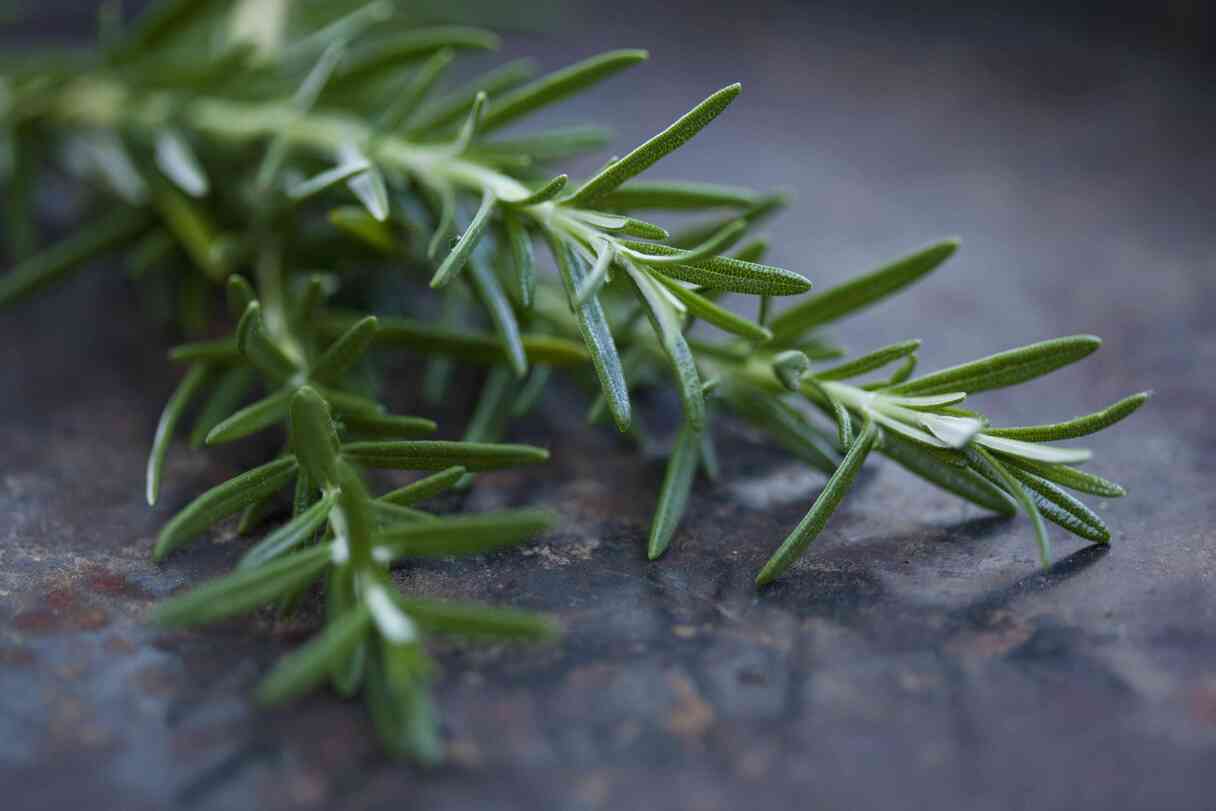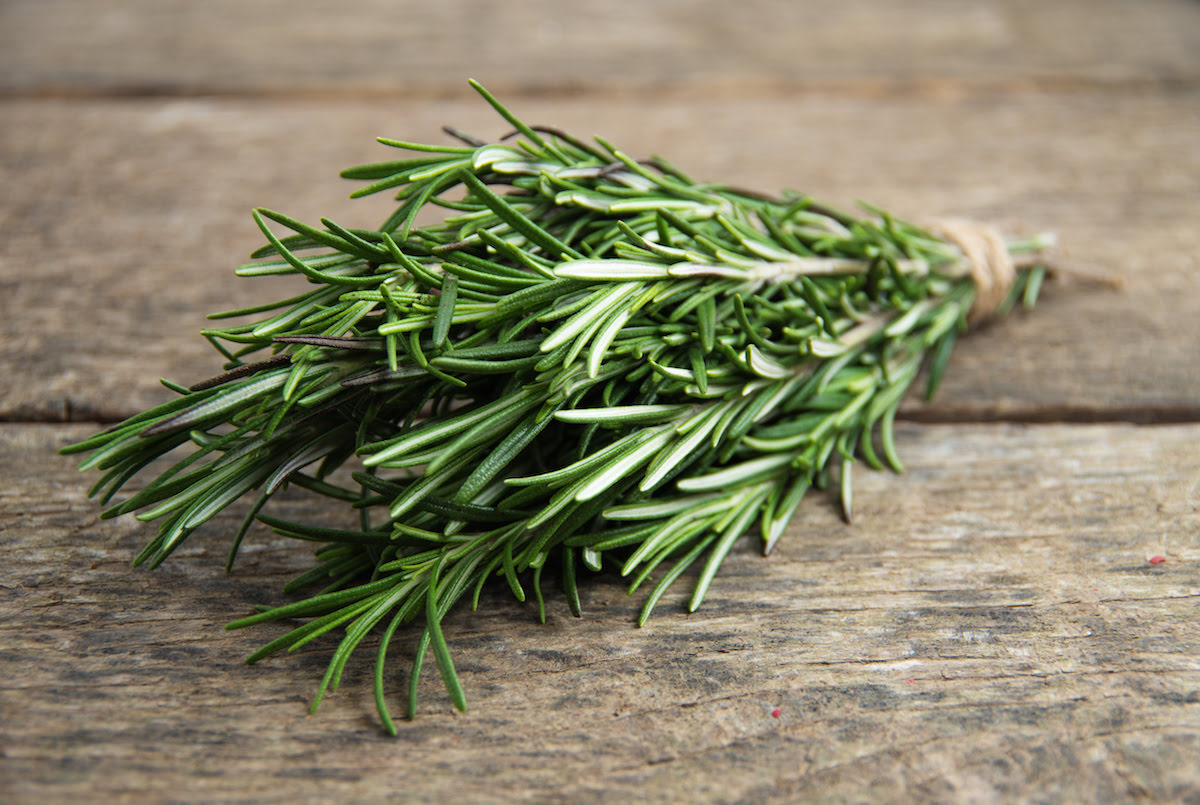Home>Types of Gardening>Edible Gardening>What Is Rosemary Salt Used For


Edible Gardening
What Is Rosemary Salt Used For
Published: January 28, 2024
Discover the many uses of rosemary salt in edible gardening. Enhance the flavors of your homegrown produce with this versatile seasoning.
(Many of the links in this article redirect to a specific reviewed product. Your purchase of these products through affiliate links helps to generate commission for Chicagolandgardening.com, at no extra cost. Learn more)
Table of Contents
Introduction
Welcome to the world of edible gardening! Whether you are a seasoned gardener or just starting out, growing your own fruits, vegetables, and herbs can be a rewarding and sustainable way to provide fresh and healthy food for you and your family. One versatile herb that often finds its place in gardens is rosemary. Not only does it add a delightful aroma and flavor to various dishes, but it can also be used in making a special type of seasoning called rosemary salt.
Rosemary salt is a combination of dried rosemary leaves and salt, creating a flavorful blend that can be used to enhance the taste of a wide range of foods. It offers a unique and aromatic twist to your culinary creations, making it a must-have ingredient for any home cook and garden enthusiast.
In this article, we will explore the world of rosemary salt and its many versatile uses. From seasoning meats and vegetables to infusing oils and vinegars, this simple yet versatile seasoning can elevate your dishes to a whole new level. We will also delve into its lesser-known applications in beauty and wellness. So, let’s dive in and discover the wonders of rosemary salt!
What is Rosemary Salt?
Rosemary salt is a flavorful seasoning that combines the earthy and aromatic notes of dried rosemary leaves with the savory and versatile nature of salt. It is a simple yet effective way to add a burst of flavor to your dishes. The process of making rosemary salt involves blending dried rosemary leaves with salt, allowing the flavors to infuse together over time.
The use of rosemary in salt dates back centuries, with rosemary being a beloved herb in Mediterranean cuisine. It is renowned for its robust flavor and fragrance, making it a popular choice for adding depth to a variety of dishes.
The combination of rosemary and salt creates a harmonious balance of flavors. The salt enhances the natural flavors of the rosemary while providing a subtle salty taste to the overall seasoning. This blend not only adds a unique taste to your dishes but also enhances the visual appeal with its vibrant green color.
Rosemary salt can be made using different types of salt, such as sea salt or kosher salt. The choice of salt can slightly alter the overall flavor and texture of the seasoning, allowing for customization according to personal preferences.
Not only does rosemary salt add a distinctive taste to your dishes, but it also offers several health benefits. Rosemary is known for its antioxidant and anti-inflammatory properties, making it a valuable addition to your diet. Furthermore, salt is an essential mineral that plays a crucial role in maintaining proper bodily functions.
Now that we understand what rosemary salt is, let’s explore the various culinary applications of this versatile seasoning in the next section.
Culinary Uses of Rosemary Salt
Rosemary salt is a versatile seasoning that can elevate the flavors of your dishes in a variety of ways. From seasoning meats and vegetables to enhancing the taste of baked goods, this flavorful blend can add a unique twist to your culinary creations. Let’s explore some of the key culinary uses of rosemary salt:
- Seasoning Meats and Poultry: Sprinkling rosemary salt on meats and poultry before cooking can add a delicious depth of flavor. Whether you’re grilling, roasting, or sautéing, the combination of rosemary and salt enhances the natural flavors of the meat, resulting in a mouthwatering dish.
- Enhancing Vegetables and Roasted Potatoes: Rosemary salt is a perfect companion for vegetables, particularly when roasted or grilled. Simply toss your favorite vegetables with a drizzle of olive oil and sprinkle some rosemary salt for a burst of savory goodness. It can also take roasted potatoes to the next level, providing a flavorful crust and a fragrant aroma.
- Flavoring Baked Goods: Believe it or not, rosemary salt can even be used to add a unique touch to baked goods. Adding a pinch of rosemary salt to bread dough or pastry recipes can impart a subtle hint of earthy flavor, creating a delightful contrast to the sweetness.
- Infused Oils and Vinegars: Rosemary salt can be used to infuse oils and vinegars, creating flavorful bases for dressings, marinades, and sauces. Simply combine rosemary salt with your preferred oil or vinegar, and let it steep for a few days. The resulting infused oil or vinegar can be used to add a burst of flavor to your dishes.
- Homemade Salad Dressings: Adding rosemary salt to your homemade salad dressings can add depth and complexity to your greens. Whether you prefer a tangy vinaigrette or a creamy dressing, a pinch of rosemary salt can take your salads to a whole new level.
These are just a few examples of the culinary uses of rosemary salt. Its versatility allows you to experiment and get creative in the kitchen, adding an extra layer of flavor to your favorite dishes.
Seasoning Meats and Poultry
When it comes to adding flavor to meats and poultry, rosemary salt is a go-to seasoning that can take your dishes to the next level. Whether you’re grilling, roasting, or sautéing, the combination of rosemary and salt can enhance the natural flavors of the meat and create a tantalizing taste experience.
One of the simplest ways to use rosemary salt on meats and poultry is to generously sprinkle it on all sides before cooking. The salt helps to draw out moisture and intensify the flavors of the meat, while the aromatic notes of rosemary infuse into the meat, creating a mouthwatering result.
For grilling, whether it’s a juicy steak or succulent chicken breasts, rubbing a mixture of rosemary salt and olive oil onto the meat before grilling can form a flavorful crust and provide a delightful aroma. The combination of the bold, earthy flavor of rosemary with the savory taste of the salt adds depth and complexity to the meat.
Roasting is another cooking method where rosemary salt shines. For a whole chicken or a tender roast, sprinkle rosemary salt all over the meat, ensuring the flavors penetrate into the flesh. As the meat cooks in the oven, the rosemary salt creates a delicious crust and permeates the meat, infusing it with aromatic flavors.
If you prefer pan-searing or sautéing meats, rosemary salt can be used as a seasoning to amp up the taste. Sprinkle it over the meat just before cooking, allowing the flavors to meld while it cooks. As you sear the meat, the rosemary salt will create a delicious caramelized crust, adding an extra layer of flavor to your dishes.
Whether you’re cooking beef, pork, lamb, chicken, or turkey, rosemary salt is a versatile companion that can enhance the flavors and elevate your culinary creations. It’s a simple yet effective way to add depth and complexity to your meat dishes.
Enhancing Vegetables and Roasted Potatoes
Vegetables are a key component of any meal, and rosemary salt can be a game-changer when it comes to enhancing their flavors. Whether you’re roasting, grilling, or sautéing your veggies, the combination of rosemary and salt can take them from ordinary to extraordinary.
When roasting vegetables, simply toss them in olive oil and sprinkle with rosemary salt. The salt helps to draw out moisture from the vegetables, resulting in a caramelized and intensified flavor. The aromatic notes of rosemary infuse into the vegetables, adding an earthy and savory element to the dish. From roasted carrots and sweet potatoes to Brussels sprouts and cauliflower, rosemary salt can bring out the best in these vegetables.
If you’re grilling vegetables, coat them with a mixture of olive oil and rosemary salt before placing them on the grill. The salt helps to enhance the natural flavors of the vegetables while creating a slightly charred and smoky taste. The woody fragrance of rosemary adds a delightful twist to the grilled veggies, making them a standout side dish.
Sautéed vegetables can also benefit from the addition of rosemary salt. Heat a tablespoon of olive oil in a pan, add your favorite vegetables, and sprinkle with rosemary salt to season. As the vegetables cook, the flavors of the salt and rosemary marry together, resulting in a savory and aromatic dish that pairs well with a variety of main courses.
When it comes to roasted potatoes, rosemary salt is a match made in culinary heaven. Whether you’re making crispy roasted baby potatoes or fluffy roasted russets, sprinkle rosemary salt liberally over the potatoes before baking. The combination of the salt and rosemary infuses into the potatoes, creating a delightful balance of flavors. The result? A mouthwatering side dish that will have everyone reaching for seconds.
From roasted Brussels sprouts to grilled zucchini and crispy roasted potatoes, the possibilities are endless when it comes to enhancing vegetables with rosemary salt. This versatile seasoning can transform any vegetable dish into a flavor-packed masterpiece.
Flavoring Baked Goods
While rosemary salt is commonly known for its savory applications, it might surprise you to learn that it can also be used to add a unique touch to baked goods. Adding a pinch of rosemary salt to your recipes can infuse them with a subtle hint of earthy flavor, creating an unexpected and delightful twist.
When making bread, whether it’s a rustic loaf or a batch of dinner rolls, consider adding a small amount of rosemary salt to the dough. As the bread bakes, the flavors of the rosemary and salt will meld with the other ingredients, resulting in a more complex and flavorful bread. The artful combination of the herbaceous rosemary and the savory salt can elevate your homemade bread to new heights.
For those with a sweet tooth, rosemary salt can also be incorporated into certain pastry recipes. A classic example is adding rosemary salt to shortbread cookies. The gentle herbal notes of rosemary add a unique and unexpected twist to the buttery sweetness of the cookies. Just sprinkle some rosemary salt into the dough or lightly dust the cookies with it before baking for a delightful and intriguing flavor combination.
The key to successfully incorporating rosemary salt into baked goods is to use it sparingly. Remember, we are aiming for a subtle hint of flavor, not an overpowering taste. Start with a small amount and adjust according to your personal preference. Don’t be afraid to experiment and unleash your creativity in the kitchen!
The addition of rosemary salt to your baked goods can bring a new dimension of flavor, surprising and delighting your taste buds. So the next time you’re baking, consider infusing your creations with the unique and aromatic charm of rosemary salt.
Infused Oils and Vinegars
Rosemary salt can be a wonderful ingredient to create infused oils and vinegars, adding a burst of flavor to your dressings, marinades, and sauces. Infusing oils and vinegars with rosemary salt is a simple and effective way to elevate the taste profile of your dishes.
To create an infused oil, start by selecting a high-quality oil, such as extra virgin olive oil or grapeseed oil. Combine the oil with rosemary salt in a clean glass jar or bottle, ensuring that the salt is well distributed throughout the oil. Let the mixture sit for a few days to allow the flavors to meld together. The result will be a fragrant and flavorful oil that can be drizzled over salads, grilled vegetables, or used as a dipping oil for fresh bread.
Infused vinegars can be made in a similar manner. Choose a vinegar of your preference, such as red wine vinegar or apple cider vinegar. Mix the vinegar with rosemary salt in a jar or bottle, ensuring the salt is well dissolved. Allow the mixture to steep for a few days to infuse the flavors. The infused vinegar can then be used to add a tangy and herby kick to your dressings, marinades, or homemade sauces.
Infused oils and vinegars can be great additions to your culinary repertoire. They not only provide a unique flavor to your dishes but also make beautiful and thoughtful gifts for friends and family who appreciate good food.
When using infused oils and vinegars, it’s important to store them properly. Keep them in a cool, dark place to preserve their quality and extend their shelf life. Additionally, always use clean utensils when retrieving oil or vinegar from the infused containers to avoid any contamination.
So, why settle for ordinary oils and vinegars when you can infuse them with the aromatic and flavorful combination of rosemary and salt? Get creative in the kitchen and experiment with different flavors by incorporating rosemary salt into your homemade infused oils and vinegars.
Homemade Salad Dressings
One of the easiest and most delicious ways to incorporate rosemary salt into your meals is by using it to make homemade salad dressings. The combination of the herbaceous rosemary and the savory salt adds depth and complexity to your dressings, taking your salads to a whole new level of flavor.
To create a basic vinaigrette, whisk together olive oil, vinegar (such as red wine vinegar or balsamic vinegar), and a pinch of rosemary salt. The salt helps to balance the acidity of the vinegar while infusing the dressing with a delightful herbaceous flavor. You can also add other ingredients like Dijon mustard, honey, or garlic to further enhance the taste.
If you prefer creamy dressings, combine mayonnaise, sour cream, or Greek yogurt with rosemary salt for a tangy and herb-infused dressing. You can add lemon juice, grated Parmesan cheese, or minced garlic for extra zest and depth of flavor.
Customize your dressings by adding other herbs, such as thyme or basil, or incorporating citrus zest for a refreshing twist. Experiment with different ratios of ingredients to find the perfect balance of flavors that suits your taste buds.
Using homemade dressings allows you to control the quality of ingredients, avoid preservatives and additives, and tailor the flavors to your preference. With rosemary salt as a key ingredient, your salad dressings will have a unique and memorable taste that will have everyone asking for the recipe.
Drizzle your homemade rosemary salt dressings over a variety of greens, from simple mixed lettuces to spinach, arugula, or kale. Add your favorite toppings, such as cherry tomatoes, cucumbers, feta cheese, or toasted nuts, to create a salad bursting with flavor and freshness.
Homemade salad dressings with rosemary salt can transform a simple salad into a gourmet experience. So why settle for store-bought dressings when you can easily create your own with the perfect blend of flavors that only rosemary salt can provide?
Beauty and Wellness Applications
While rosemary salt is primarily known for its culinary uses, it also holds potential benefits for beauty and wellness applications. The herbaceous aroma and natural properties of rosemary can be harnessed in various ways to promote self-care and enhance your well-being.
One way to incorporate rosemary salt into your beauty routine is by creating a DIY exfoliating scrub. The coarse texture of the salt helps to slough off dead skin cells, while the rosemary adds a refreshing scent. Simply mix rosemary salt with a carrier oil like coconut oil or almond oil to create a paste. Gently massage this scrub onto damp skin, then rinse off for a revitalizing and invigorating experience.
The aromatic properties of rosemary can also be enjoyed by adding a few tablespoons of rosemary salt to a warm bath. The scent of rosemary can help to relax the mind and soothe tired muscles, promoting a sense of relaxation and rejuvenation. Soaking in a rosemary-infused salt bath can be a wonderful way to unwind after a long day and create a spa-like experience in the comfort of your own home.
In addition to its beauty applications, rosemary salt can also be used in various wellness practices. For instance, the scent of rosemary is believed to stimulate memory and mental clarity. Diffusing rosemary salt in an aromatherapy diffuser or simply inhaling its aroma can help improve focus and concentration.
Furthermore, some people believe that rosemary has properties that promote scalp health. You can create a DIY scalp scrub by mixing rosemary salt with a carrier oil and gently massaging it into your scalp. This can help exfoliate the scalp and remove excess buildup, leaving your hair feeling refreshed and revitalized.
As with any beauty and wellness practices, it’s important to remember that individual results may vary. If you have any concerns or specific skin or health conditions, it’s always best to consult with a healthcare professional or dermatologist before trying new treatments.
By exploring the beauty and wellness applications of rosemary salt, you can incorporate this versatile ingredient into your self-care routine and enhance your overall well-being.
Conclusion
Rosemary salt is not just an ordinary seasoning; it is a versatile ingredient that can elevate the flavors of your culinary creations while providing unique benefits in beauty and wellness applications. From enhancing the taste of meats and vegetables to flavoring baked goods and creating infused oils and vinegars, the possibilities with rosemary salt are endless.
When seasoning meats and poultry, rosemary salt adds a delightful depth of flavor and aroma, making your dishes truly mouthwatering. It can also enhance the natural flavors of vegetables and roasted potatoes, turning them into savory delights. In baked goods, a hint of rosemary salt can create an unexpected and enticing taste experience.
For those looking to explore the world of infused oils and vinegars, rosemary salt can bring an herbaceous and savory twist to dressings, marinades, and sauces. It’s a simple yet effective way to elevate the flavors of your dishes.
Furthermore, rosemary salt can be incorporated into beauty and wellness practices, such as creating exfoliating scrubs or enjoying its aromatic properties in baths and aromatherapy. The scent and properties of rosemary can contribute to a relaxing and rejuvenating self-care routine.
As you embark on your edible gardening journey, consider the value and versatility of rosemary salt. Experiment with different uses and recipes to discover your favorite applications. Whether it’s in the kitchen or for self-care, rosemary salt can truly enhance your experience and bring an extra touch of flavor and wellness to your life.
So, go ahead and sprinkle some rosemary salt into your next meal or create a DIY beauty treatment. Embrace the aromatic charm and flavor potential of this incredible ingredient and let it elevate your edible gardening and well-being to new heights.







